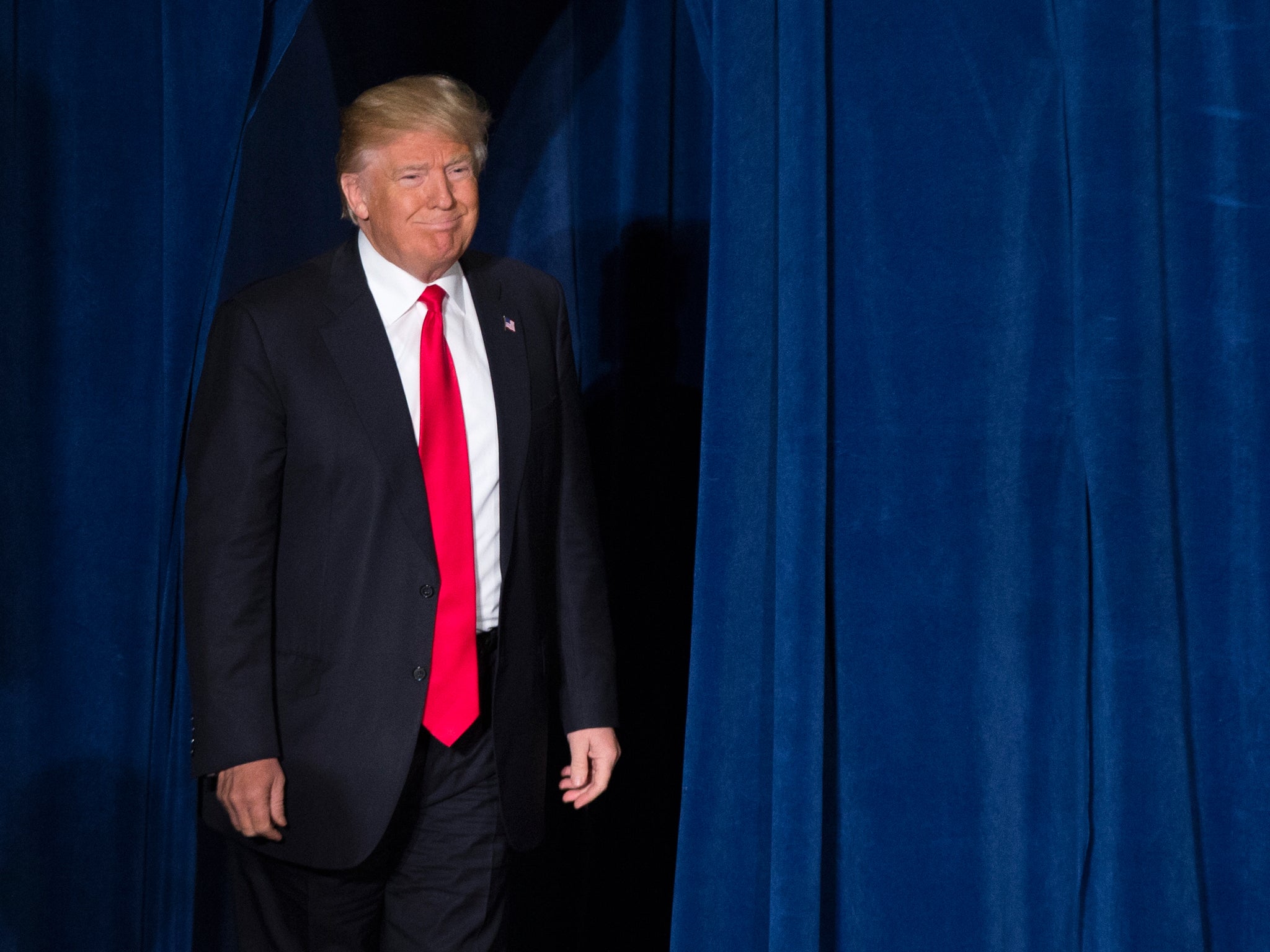Donald Trump foreign policy speech: 5 contradictions in the presidential hopeful's plan
Former Secretary of State Madeleine Albright called Donald Trump 'reckless and dangerous'

Your support helps us to tell the story
From reproductive rights to climate change to Big Tech, The Independent is on the ground when the story is developing. Whether it's investigating the financials of Elon Musk's pro-Trump PAC or producing our latest documentary, 'The A Word', which shines a light on the American women fighting for reproductive rights, we know how important it is to parse out the facts from the messaging.
At such a critical moment in US history, we need reporters on the ground. Your donation allows us to keep sending journalists to speak to both sides of the story.
The Independent is trusted by Americans across the entire political spectrum. And unlike many other quality news outlets, we choose not to lock Americans out of our reporting and analysis with paywalls. We believe quality journalism should be available to everyone, paid for by those who can afford it.
Your support makes all the difference.Donald Trump delivered his first major foreign policy address with the panache and certitude that the world has come to expect from the New York business mogul. But after speaking for almost 40 minutes, did anybody come away with a better idea of what, exactly, a Trump administration would mean for geopolitical affairs?
Foreign policy experts were not left feeling too confident about the prospect of Mr Trump’s global vision - despite his promise to restore coherence to US international relations.
Robert “Bud” McFarlane, former national security adviser to President Ronald Reagan who attended the invite-only speech, told Politico that Mr Trump’s plan was “lacking in policy prescriptions” and his “strident rhetoric masked a lack of depth.”
Former secretary of state under the Clinton administration Madeleine Albright told press that she had “never seen such a combination of simplistic slogans, contradictions, and misstatements in one speech,” calling his campaign “reckless and dangerous.”
Indeed, Mr Trump’s controversial speech was rife with contradictions, as he proposed an America that was simultaneously isolationist and interventionist, consistent and unpredictable, and exceptional yet still weak.
Once an enemy, always an enemy – unless they become allies
On the nation’s enemies, Mr Trump seemed resigned to the idea that some groups’ US antagonism will never change. “We need to be clear-sighted about the groups that will never be anything other than enemies,” he said, referring to defeating terrorist organisations in the Middle East.
Shortly after, he embraced the idea of enemies becoming allies.
“The world must know that we do not go abroad in search of enemies, that we are always happy when old enemies become friends, and when old friends become allies.”
Countries can depend on the US – for a price
Mr Trump vowed to make the US “a reliable friend and ally again.” He accused President Barack Obama of bowing to enemies and letting down ally nations. “[O]ur friends are beginning to think they can’t depend on us,” he said.
Later, Mr Trump proposed to abandon Nato allies who fail to pay the 28-nation coalition 2 per cent of their GDP. “The countries we are defending must pay for the cost of this defence – and, if not, the US must be prepared to let these countries defend themselves,” Mr Trump said.
The US will help defeat ISIS around the world – only in countries who are nice
Mr Trump sees ISIS as the top threat to the US and the rest of the world. He promised to work “very closely with our allies in the Muslim world” to stop the spread of radical Islamist extremism. Still, this promise only functions on a condition.
“But this has to be a two-way street – they must also be good to us and remember us and all we are doing for them,” he said.
Obama has weakened – and wasted money on – the military
Mr Trump tore into the Obama administration and argued that, by weakening the economy, they have weakened the military. He proposed that when he strengthens the economy he will then rebuild the military.
Yet, according to Mr Trump, the US has also wasted “trillions of dollars over time – on planes, missiles, ships, equipment – building up our military to provide a strong defence for Europe and Asia.”
The US will be consistent and unpredictable
When it comes to defeating ISIS, Mr Trump argued that the US should adopt a more “unpredictable” strategy.
“We have to be unpredictable, and we have to be unpredictable starting now,” he said. Mr Trump declared ISIS’ “days are numbered,” but he did explain his strategy to maintain the element of surprise.
Near the closing of the speech, he changed his tone.
“The best way to achieve those goals is through a disciplined, deliberate, and consistent foreign policy.”
Mr Trump delivered this speech as the self-declared presumptive Republican nominee, so it may be premature to have a firm idea regarding exactly what the candidate will bring to the White House Situation Room if he wins.
But if the US is to believe that Mr Trump will bring consistent leadership to Washington – and the world – he will have to demonstrate that very consistency in his ideas.
Join our commenting forum
Join thought-provoking conversations, follow other Independent readers and see their replies
Comments